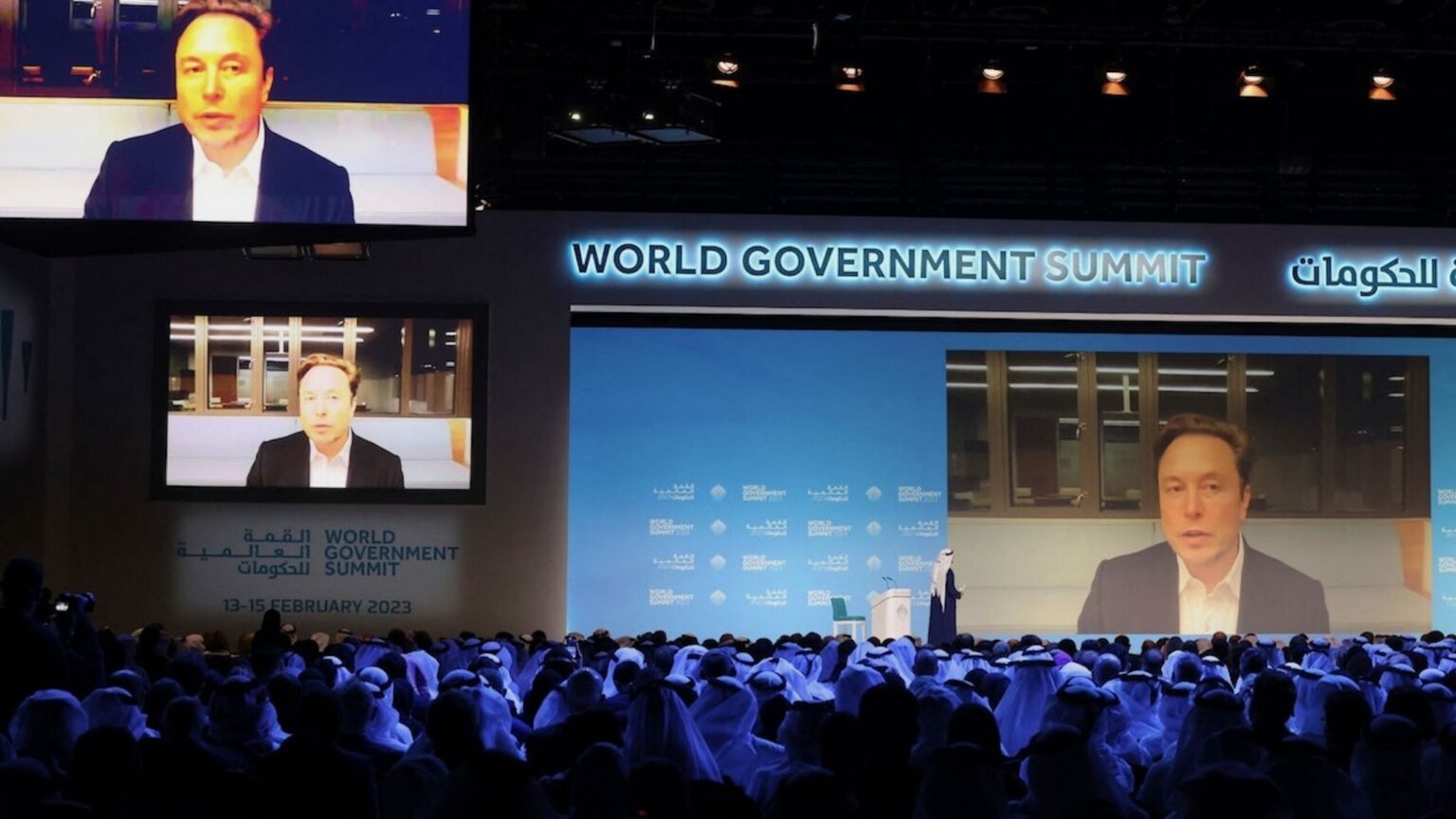Elon Musk has warned that the unrestrained development of artificial intelligence (AI) poses a potential existential threat to humanity. AI has without doubt been the year’s most popular buzzword, and the hype has continued to build since the November launch of ChatGPT.
The tech billionaire and Twitter boss remotely addressed the audience at the World Government Summit, warning them about the potential risks of AI.
“Artificial intelligence is something we need to be quite concerned about,” said Musk, who co-founded the OpenAI firm behind the development of ChatGPT.
Also read: Elon Wants A Twitter For Everything, Pushes The Payments Button
Great potential, significant threat
AI has great potential, but it also poses a significant threat to civilization, according to Musk.
“One of the biggest risks to the future of civilization is AI. But AI is both positive or negative – it has great promise, great capability but also, with that comes great danger,
“I mean, you look at, say, the discovery of nuclear physics. You had nuclear power generation but also nuclear bombs,” added Musk.
The Twitter and Tesla boss emphasized the need for AI regulation, stating it poses a bigger risk than cars, planes, or medicine. AI hype is skyrocketing and a slowdown is needed, which is possible via regulations, argues Musk.
A swathe of tech giants including Microsoft, Alphabet, Baidu, and Alibaba are all diving into the chatbot era and working to launch products with ChatGPT-like capabilities.
Musk clarifies OpenAI relationship
During his dialogue, Musk made it clear that he has no stake in OpenAI and is not involved in its operations. Musk was on the board of directors, having been an early investor in OpenAI with his former PayPal partner Peter Thiel.
“ChatGPT, I think, has illustrated to people just how advanced AI has become. AI has been advanced for a while; it just didn’t have a user interface that was accessible to most people. What ChatGPT has done is put an accessible user interface on AI technology that has been present for a few years,” said Musk.
The comments highlight the growing prominence and accessibility of AI technology, and the potential for user-friendly interfaces like ChatGPT to make it more accessible to the general public.
Pursuit of Twitter CEO
Unless you’ve been living in a cave, you probably already know that Musk purchased Twitter last October for $44 billion, though the world’s second-richest person expects to soon replace himself as CEO.
The new CEO of Twitter is amazing pic.twitter.com/yBqWFUDIQH
— Elon Musk (@elonmusk) February 15, 2023
“I think I need to stabilize the organization and just make sure it’s in a financial healthy place. I’m guessing probably toward the end of this year would be good timing to find someone else to run the company,” said Musk.
Musk emphasized the importance of a “competition for truth” on Twitter and suggested that verified accounts for public figures and governments are necessary to achieve this goal.
“Having some criticism is fine, I am constantly attacked on Twitter and I don’t mind. I have to be thick-skinned,” said Musk, who has been criticized for blocking the Twitter accounts of several detractors.
The AI Singularity is nearing
Despite growing concerns about the potential dangers of AI, experts believe the “AI revolution has already begun.”
“It’s awakened in everybody a sense that maybe the singularity… this turning point where computers really are more capable than humans, is closer than we thought,” said John Hennessy, a Silicon Valley luminary speaking this week at the TechSurge conference.
AI is becoming a part of daily life due to its ability to solve new problems in pattern recognition and generate text and images. It is widely used in industries such as computing, academia, publishing, and others.
Even though experts remain sceptical, some believe AI may eventually match human versatility.
“Some of us thought that point at which we’d have artificial general intelligence was 40 or 50 years away. I think everybody’s horizon has moved in by probably 10 or 20 years,” said Hennessy.
“These models keep getting bigger, and every time we make a jump up in the size of the model, we seem to be able to do new tasks. We don’t know where that’s going to plateau yet.”









 and then
and then